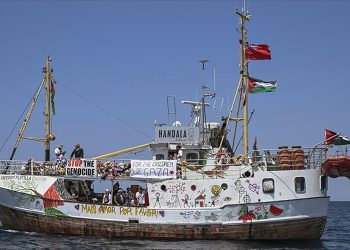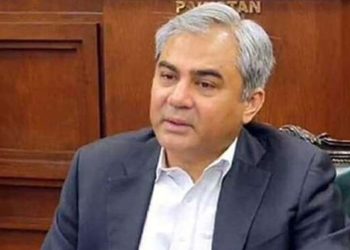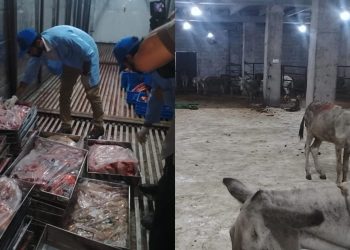Each year on May 9, Russia commemorates one of the most defining moments in its history — Victory Day. This day marks the surrender of Nazi Germany in 1945 and the end of the Great Patriotic War, as World War II is known in Russia. It is a deeply emotional and unifying occasion, not merely a celebration of military triumph, but a solemn reflection on the extraordinary human cost paid for peace.
Victory Day is etched into the Russian national consciousness like no other holiday. It is a day when the streets fill with parades and patriotic songs, but also with tears, photographs of lost loved ones, and moments of silence. The ‘Immortal Regiment’, a now-global tradition started in Russia, sees people from all walks of life carry portraits of their ancestors who fought and died — not to glorify war, but to remember its cost and honor the legacy of those who sacrificed all.
The Soviet Union bore the brunt of the Nazi onslaught, with more than 27 million lives lost, countless cities destroyed, and entire generations affected. But through starvation, bombardment, and unspeakable cruelty, the Soviet people endured. From the bitter cold trenches of Stalingrad to the resistance in the forests of Belarus, from the besieged streets of Leningrad to the final march on Berlin, theirs was a fight for survival, dignity, and the future of humanity.
Victory Day is not about military parades alone. It is about peace hard-won through pain, about the value of unity in the face of darkness, and about the enduring spirit of those who refused to give in. It serves as a reminder that the horrors of war must never be repeated, and that the memory of those who fought must guide our collective commitment to peace, justice, and international cooperation.
In a world still fraught with conflict and division, Russia’s Great Victory Day offers a powerful lesson. It teaches us that the true strength of a nation lies not in conquest, but in its capacity to endure, rebuild, and never forget.
As Russia and the world remember the sacrifice of the past, we must also look forward — striving to ensure that such suffering is never visited upon future generations. For in remembering the past, we shape a more peaceful future. Eternal glory to the heroes. Eternal memory to the fallen. Peace to all nations.
At the Russian Embassy reception in Islamabad, Ambassador of the Russian Federation to Pakistan, Albert Pavlovich Khorev, captured the emotional and historical gravity of this day, saying: “We celebrate the 80th anniversary of the Great Victory, the defeat of Nazi Germany, which determined the outcome of the Second World War. It was undoubtedly a victory of good over evil, which prevented the spread of the ‘brown plague’ — the threat of death hanging over humanity.”
This was not a typical war. It was an existential battle, waged not only on battlefields but in every home, factory, village, and soul across the Soviet Union. From 1941 to 1945, the USSR stood as the main bulwark against Nazi domination, paying the highest price as over 27 million lives were lost. As Ambassador Khorev poignantly reminded the audience: “We remember the 27 million Soviet citizens… soldiers, home front workers, the elderly and children whose lives were taken by the war. Our nation manifested extraordinary courage and heroism, strength of will and spirit. They consciously sacrificed their lives for the common victory.”
This sacrifice turned the tide of global history. The Soviet resistance in Brest, Moscow, Leningrad, Stalingrad, Kursk, and the Caucasus ensured that the Nazi war machine — which had overrun much of Europe — was ultimately broken. “The battle for the Caucasus, which lasted more than a year at the same time as the Battle of Stalingrad, prevented the Germans from breaking through to the oil-rich parts of Azerbaijan and thwarted Hitler’s plans for further conquest of the British Middle East and India,” said the ambassador.
Victory Day is not a celebration of war — it is a tribute to peace won at the highest cost. It is a moral reminder of what happens when hatred goes unchecked. And yet, in today’s geopolitical climate, historical revisionism threatens the legacy of those who gave their lives. “We are currently witnessing attempts to rewrite and distort the truth about the Second World War and to downplay the role of the USSR in attaining the shared victory,” Khorev warned. “Ungrateful descendants of the liberated peoples… are tearing down monuments in honor of the true fighters against Nazism.”
These attempts, he continued, are not simply ideological: “Revanchism, mockery of history, and the desire to exonerate present-day followers of the Nazis are part of the general policy of Western elites to fuel more and more regional conflicts.”
The ambassador also drew a parallel between past and present: “To a large extent, it was Western revanchism, as well as neo-Nazism and Russophobia… that prompted the Russian leadership to launch the special military operation in Ukraine. Today its participants — the warriors of modern Russia — are continuing the work of their ancestors.”
But the message of Victory Day extends beyond confrontation — it is a call for unity, cooperation, and remembrance. “Victory Day unites all generations,” Khorev emphasized. “We are confident that together with our friends and partners we will ensure a free and secure future for our country, the region and the world.” He also highlighted Russia’s growing role in Eurasian integration through alliances such as CSTO, SCO, BRICS, and the new Eurasian Charter of Diversity and Multipolarity.
President of Pakistan Asif Ali Zardari was the chief guest along with Chairman Senate Syed Yousaf Raza Gilani, Speaker National Assembly Sardar Ayaz Sadiq, and several ministers and hundreds of other guests flown from different cities to attend the reception.
Among tears, sorrows, and memories, the reception was enriched with the war songs and dances by the Cossacks cultural troupe – the people who historically lived in the south of Russia and were tasked with protecting Russia’s southern border. The performances included the most popular Russian war song – “Three Tank Men” and several other heartwarming songs and thrilling dances. The lyrics clearly conveyed the atmosphere of intense expectation and determination of the soldiers on the Soviet Far Eastern front. These lyrics resonate in the hearts of today’s servicemen, because the songs are about brotherhood in combat, unconditional support, and readiness to help a comrade. The resilience and courage reflect in their ‘Special Military Operation’ in Ukraine as well.
































